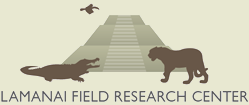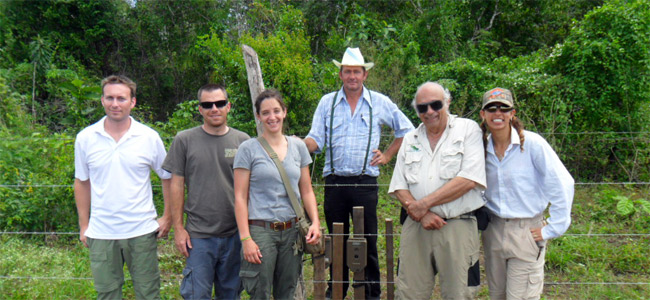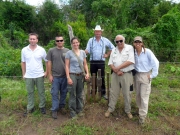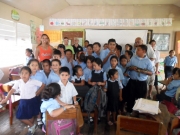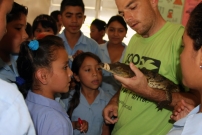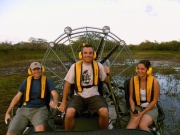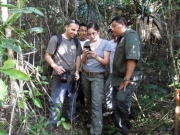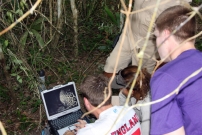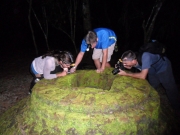Community outreach and collaboration are the basis of every great conservation project. In March, LFRC hosted Zoo Miami in Belize as part of our new research partnership. The recently developed Conservation and Research Department at Zoo Miami, under the direction of Dr. Frank N. Ridgley, focuses on conserving the natural resources of South Florida and imperiled areas around the world through community education, active research and field work, establishing a culture of sustainable practices and collaboration with their partners. With this first of many technical visits, Zoo Miami joined our research team to meet the community as well as explore the beautiful and diverse landscape.
One of the trip’s highpoints was speaking with village landowners about the human-wildlife conflict in the area over a delicious lunch hosted by one of our participating Mennonite farmers. Zoo Miami and LFRC shared in the first meal amongst a diversity of landowners – it was a poignant moment for all of us. Zoo Miami also visited the local schoolchildren to discuss the role of zoos, the importance of wildlife education, and the need for conservation. The team’s visit was filled with memorable experiences that also included laying the groundwork for studying a population of the critically endangered Central American river turtle, the Hicatee (Dermatemys maweii) and participating in the Morelet’s crocodile (Crocodylus moreletii) monitoring project. Zoo Miami also travelled by Mennonite buggy to check camera traps and were at the center to witness first-hand the video documentary of the two male jaguars feeding on the same calf kill. According to the Zoo Miami team, “All of the experiences were both exciting and rewarding, and we are looking forward to developing our relationship in the future.”
Check out the video compilation Frank Ridgley made, as well as photos from the trip:
